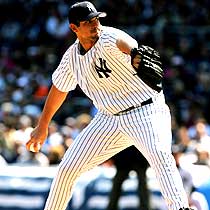Baseball is so enjoyable that even the off season provides entertainment. Baseball fans across America and the world are already rubbing their hands together, anxiously waiting for the "
Hot Stove" to heat up even before the
World Series is over.
Such is the passion of a baseball fan, and such is the goldmine that baseball offers the fiction writer.
Baseball offers intense drama within each game. There's the pitcher's duel, the running game, small ball, and the long ball, each aspect of the game is based on the skill of the players involved. The speedy runner is called upon to steal the base, the heavy hitter drives the ball, the "not so great" hitter will be told to bunt, and the pitcher is needed to keep the bats of the opposing team quiet. This drama can be incorporated into your fiction. Your character can watch the game with either excitement or fear, depending on who is winning. Or, your character can be the pitcher who is throwing a perfect game into the ninth...while nursing a potentially career ending injury. Or maybe, the guy meets the girl while seated next to each other in the stands and they fall in love. Yes, there's plenty of drama to be created both on and off the field.
So much of American life revolves around baseball that it remains within easy reach of even those who don't consider themselves fans. Who among us never passed by a park and watched as kids in colorful, little league shirts scrambled for the ball as a young batter ran awkwardly around the base pads with a helmet blocking his vision? Also, who hasn't smelled hot dogs at the stadium and absolutely had to have one? Many summer memories include splashing all day at the beach with someone's A.M. radio broadcasting a game in the background. For the non-fan of baseball, there are many cultural aspects to the game which aren't easily avoided. Any mention of a "ground ball", "home run", or even "grand slam" has meaning for even the completely uninitiated. Because baseball is so ingrained into our memories and our lives, using the game or aspects of it, in your fiction is universally appealing.
When writing fiction involving baseball, there's so much to build on that in spite of the many baseball stories already out there, the writer can still swing away with an original idea and maybe tug a few heart strings in the process. Your characters don't have to be players, but fans of the game. They can be a child on a little league team, a player's wife, a never was, a has-been, or someone who's last wish is to meet a baseball legend. The material this game provides the author is rich enough to extend outside the stadium and into the lives of even those character's vaguely connected to the game.
In my own stories, although I've yet to write about a player, or give an account of a game, I'll often allow my characters to be fans of a particular team, attend a game, or anticipate going to one. This offers the reader familiarity which transcends the plot of the story. Mostly, it's because I love baseball.
In a week or two, I'll begin plotting another novel. Once again, it will have nothing to do with baseball. Yet, in the frigid months of winter, with the hot stove roaring in the background, one of my characters is going to put on a baseball cap before getting shot at.




